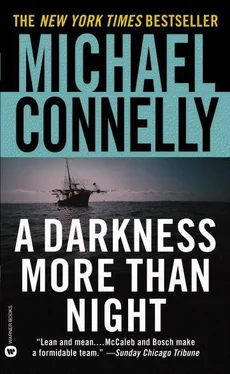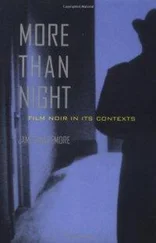“Good morning, Mr. Wiggan.”
“Good morning.”
Wiggan raised his eyebrows in a what-do-we-have-here look.
“Just a few questions. Could you list for the jury the titles of films that you have written that have been produced?”
“Well…, so far, nothing’s been made. I’ve got some options and I think in a few -”
“I understand. Would you be surprised to know that in the last four years you have pitched Mr. Storey or submitted film treatments to him on a total of twenty-nine occasions, all of which were rejected?”
Wiggan’s face flushed with embarrassment.
“Well, I… I guess that could be true. I… don’t really know. I don’t keep a record of my rejections, as Mr. Storey apparently does.”
He delivered the last line in a snippish manner and Bosch almost winced. There was nothing worse than a witness on the stand who is caught in a lie and then gets defensive about it. Bosch glanced at the jury. Several of them were not looking at the witness, a sign that they were as uncomfortable as Bosch.
Fowkkes moved in for the kill.
“You were rejected by the defendant on twenty-nine occasions and yet you say to the jury that you bear him no malice, is that correct, sir?”
“That’s just business as usual in Hollywood. Ask anyone.”
“Well, Mr. Wiggan, I am asking you. Are you telling this jury that you bear this man no ill will when he is the same man who has constantly and repeatedly said to you, your work is not good enough?”
Wiggan almost mumbled his answer into the microphone.
“Yes, that is true.”
“Well, you’re a better man than me, Mr. Wiggan,” Fowkkes said. “Thank you, Your Honor. Nothing further at this time.”
Bosch could feel a good bit of the air go out of the prosecution’s balloon. With four questions and less than two minutes Fowkkes had put Wiggan’s entire credibility into question. And what was so absolutely perfect about the defense attorney’s skillful surgery was that there was little Kretzler could do on redirect to resuscitate Wiggan. The prosecutor at least knew better than to try and perhaps dig the hole deeper. He dismissed the witness and the judge called for the mid-morning break of fifteen minutes.
After the jury was out and people started working their way out of the courtroom, Kretzler leaned across Langwiser to whisper to Bosch.
“We should’ve known that this guy was going to blow up,” he said angrily.
Bosch just looked around to make sure no reporters were within earshot. He leaned toward Kretzler.
“You’re probably right,” he said. “But six weeks ago you were the one who said he would do the vetting on Wiggan. He was your responsibility, not mine. I’m going to get coffee.”
Bosch got up and left the two prosecutors sitting there.
***
After the break the prosecutors decided they needed to come back strong immediately after the disastrous cross-examination of Wiggan. They dropped plans to have another witness testify about seeing Storey and the victim together at the premiere party and Langwiser called a home security technician named Jamal Hendricks to the stand.
Bosch walked Hendricks in from the hallway. He was a black man wearing blue pants and a light blue uniform top, his first name embroidered over one pocket and the Lighthouse Security emblem over the other. He was planning to go to work following his testimony.
As they went through the first set of doors to the courtroom Bosch asked Hendricks in a whisper if he was nervous.
“Nah, man, piece of cake,” Hendricks replied.
On the stand Langwiser took Hendricks through his pedigree as a service technician for the home security company. She then moved specifically to his work on the security system at David Storey’s house. Hendricks said that eight months earlier he had installed a deluxe Millennium 21 system in the house on Mulholland.
“Can you tell us what some of the features are on the deluxe Millennium Twenty-one system?”
“Well, it’s top of the line. It’s got everything. Remote sensing and operation, voice recognition command software, automatic sensor polling, an innkeeper program… you name it and Mr. Storey got it.”
“What is an innkeeper program?”
“Essentially, it’s operation recording software. It lets you know what doors or windows have been opened and when, when the system has been turned on and off, what personal codes were used and whatnot. It keeps track of the whole system. It’s primarily used in commercial-industrial applications but Mr. Storey wanted a commercial system and it came included.”
“So he didn’t specifically ask for the innkeeper program?”
“I don’t know about that. I didn’t sell him the system. I only installed it.”
“But he could have had this program and not known about it.”
“Anything’s possible, I guess.”
“Now did there come a time when Detective Bosch called Lighthouse Security and asked for a technician to meet him at Mr. Storey’s home?”
“Yeah, he made the call and it was given to me because I had installed the system. I met him there at the house. This was after Mr. Storey had been arrested and was in lockup. Mr. Storey’s lawyer was there, too.”
“When was that exactly?”
“That was November eleventh.”
“What did Detective Bosch ask you to do?”
“Well, first he showed me a search warrant. It allowed him to collect information from the system’s chip.”
“And did you help him with that?”
“Yeah. I downloaded the innkeeper data file and printed it out for him.”
Langwiser first introduced the search warrant – the third executed during the investigation – as an exhibit, then she introduced the printout Hendricks had just testified about.
“Now Detective Bosch was interested in the innkeeper records for the evening of October twelfth going into the morning of October thirteenth, is that correct, Mr. Hendricks?”
“Right.”
“Can you look at the printout and read the entries for that time period?”
Hendricks studied the printout for several seconds before speaking.
“Well, it says the interior door leading to the garage was opened and the alarm system was engaged by Mr. Storey’s voiceprint at seven-oh-nine the night of the twelfth. Then nothing happened until the next day, the thirteenth. At twelve-twelve A.M. the alarm system was disengaged by Mr. Storey’s voiceprint and the interior garage door was opened again. He then put the alarm back on – once he was in the house.”
Hendricks studied the printout before continuing.
“The system remained at status until three-nineteen, when the alarm was shut off. The interior garage door was then opened and the alarm system was engaged once more by Mr. Storey’s voiceprint. Then, forty-two minutes later, at four-oh-one A.M., the alarm was disengaged by Mr. Storey’s voiceprint, the garage door was opened and the alarm system was engaged again. There was no other activity until eleven A.M., when the alarm was disengaged by the voice print of Betilda Lockett.”
“Do you know who Betilda Lockett is?”
“Yes, when I installed the system I set up her voice acceptance program. She’s Mr. Storey’s executive assistant.”
Langwiser asked permission to set up an easel with a board displaying the times and activities Hendricks had just testified to. It was approved over objection and Bosch helped Langwiser set up the display. The poster board had two columns on it showing the record of the house alarm’s engagement and the usage of the door between the house and the garage.
ALARM
INTERIOR GARAGE DOOR
10/12
7:09 P.M. – engaged by D. Storey. opened/closed
10/13
12:12 A.M. – disengaged by D. Storey opened/closed
Читать дальше












